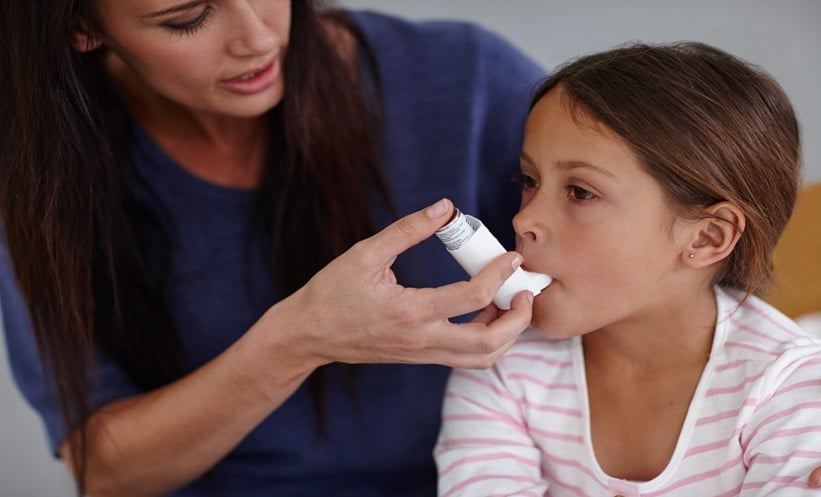NOVEL research has identified a strong connection between early-life respiratory tract infections and the development of asthma in children, particularly in children with allergic rhinitis. This study, part of the Copenhagen Prospective Studies on Asthma in Childhood 2010 birth cohort, examined how the burden and types of common infections in the first three years of life influence asthma risk from age 3 to 10 and lung function at age 10.
The study followed 662 children, documenting infections such as colds, acute tonsillitis, acute otitis media, pneumonia, gastroenteritis, and fever in daily diaries from birth to age 3. Asthma diagnoses were tracked longitudinally until age 10.
Children in the study experienced a median of 16 infections by age 3. Those with a higher-than-median number of infections had a 3.61 times greater risk of developing asthma between ages 3 and 10. This increased risk was primarily linked to colds, pneumonia, gastroenteritis, and fever but not to acute otitis media or tonsillitis. Lower lung function at age ten was associated with early pneumonia but not the overall infection burden.
The study found that children with allergic rhinitis at age six and a high number of colds had an even higher risk of developing asthma, suggesting a significant interaction between allergic rhinitis and infection burden. Specifically, these children were 14.4 times more likely to develop asthma than those with fewer infections. In contrast, children without allergic rhinitis but with a high infection burden were 3.62 times more likely to develop asthma. There were no significant associations between the overall burden of common infections and lung function measurements at age 10. However, pneumonia in early childhood was linked to lower FEV1 (forced expiratory volume) and maximal midexpiratory flow, indicating reduced lung function.
The results revealed a significant association between a high number of early infections and an increased asthma risk. The study authors recommended randomised controlled trials of maternal and child vaccinations, antibody administration, bacterial lysate treatment, and vitamin D supplementation to explore their potential in preventing infections and reducing asthma risk, particularly in children with respiratory allergies. The results underscore the importance of monitoring and managing early childhood infections to mitigate long-term respiratory health risks. Moreover, the findings suggest that early interventions targeting infection prevention could play a crucial role in reducing the incidence of asthma in children, especially those with predisposing allergic rhinitis.
Laith Gergi, EMJ
Reference
Kyvsgaard JN et al. Burden and subtypes of early life infections increase the risk of asthma. J Allergy Clin Immunol Pract. 2024;S2213-2198(24):00390-8.






